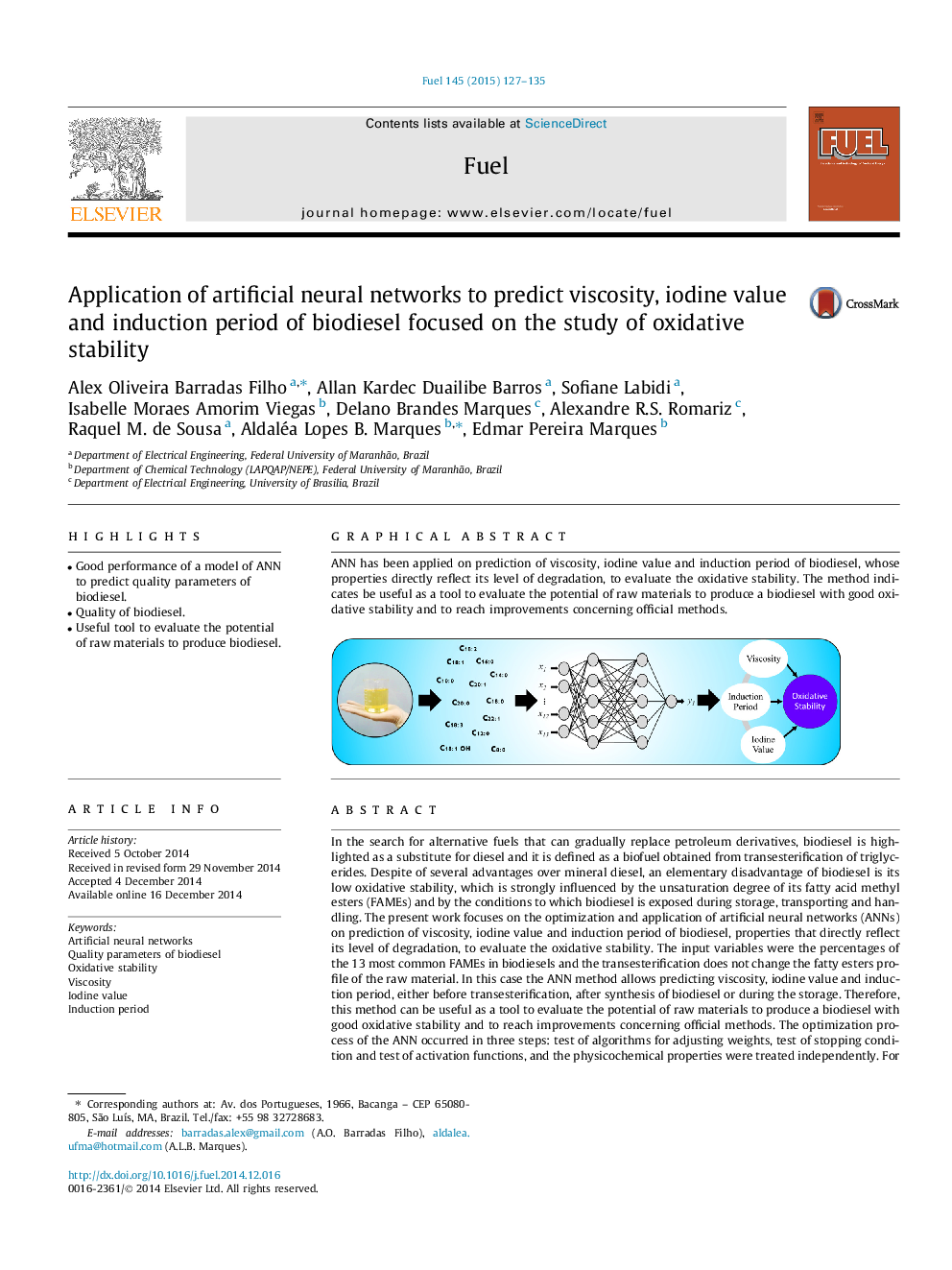| کد مقاله | کد نشریه | سال انتشار | مقاله انگلیسی | نسخه تمام متن |
|---|---|---|---|---|
| 205801 | 461125 | 2015 | 9 صفحه PDF | دانلود رایگان |
Highlight
• Good performance of a model of ANN to predict quality parameters of biodiesel.
• Quality of biodiesel.
• Useful tool to evaluate the potential of raw materials to produce biodiesel.
In the search for alternative fuels that can gradually replace petroleum derivatives, biodiesel is highlighted as a substitute for diesel and it is defined as a biofuel obtained from transesterification of triglycerides. Despite of several advantages over mineral diesel, an elementary disadvantage of biodiesel is its low oxidative stability, which is strongly influenced by the unsaturation degree of its fatty acid methyl esters (FAMEs) and by the conditions to which biodiesel is exposed during storage, transporting and handling. The present work focuses on the optimization and application of artificial neural networks (ANNs) on prediction of viscosity, iodine value and induction period of biodiesel, properties that directly reflect its level of degradation, to evaluate the oxidative stability. The input variables were the percentages of the 13 most common FAMEs in biodiesels and the transesterification does not change the fatty esters profile of the raw material. In this case the ANN method allows predicting viscosity, iodine value and induction period, either before transesterification, after synthesis of biodiesel or during the storage. Therefore, this method can be useful as a tool to evaluate the potential of raw materials to produce a biodiesel with good oxidative stability and to reach improvements concerning official methods. The optimization process of the ANN occurred in three steps: test of algorithms for adjusting weights, test of stopping condition and test of activation functions, and the physicochemical properties were treated independently. For the set of test samples, which simulates real samples, the application of the optimized ANNs provided results with root mean squared errors (RMSE) of 0.55 mm2/s, 3.49 g/100 g and 0.89 h for viscosity, iodine value and induction period, respectively, what ensures the feasibility of the proposed method. A comparison between the proposed method and linear methods from literature, both based on the biodiesel composition indicates that our ANN model is much more adequate to the problem addressed.
ANN has been applied on prediction of viscosity, iodine value and induction period of biodiesel, whose properties directly reflect its level of degradation, to evaluate the oxidative stability. The method indicates be useful as a tool to evaluate the potential of raw materials to produce a biodiesel with good oxidative stability and to reach improvements concerning official methods.Figure optionsDownload as PowerPoint slide
Journal: Fuel - Volume 145, 1 April 2015, Pages 127–135
